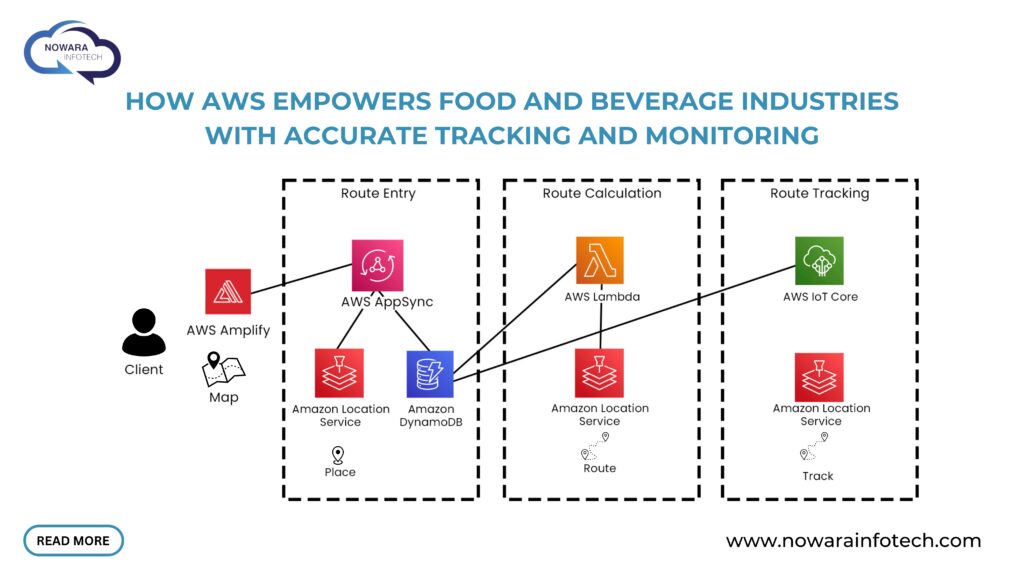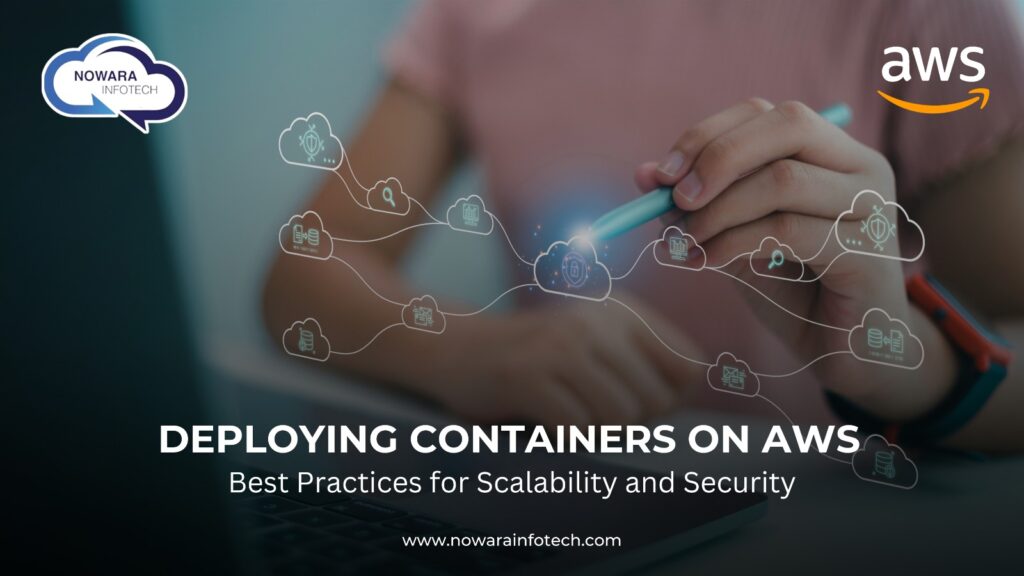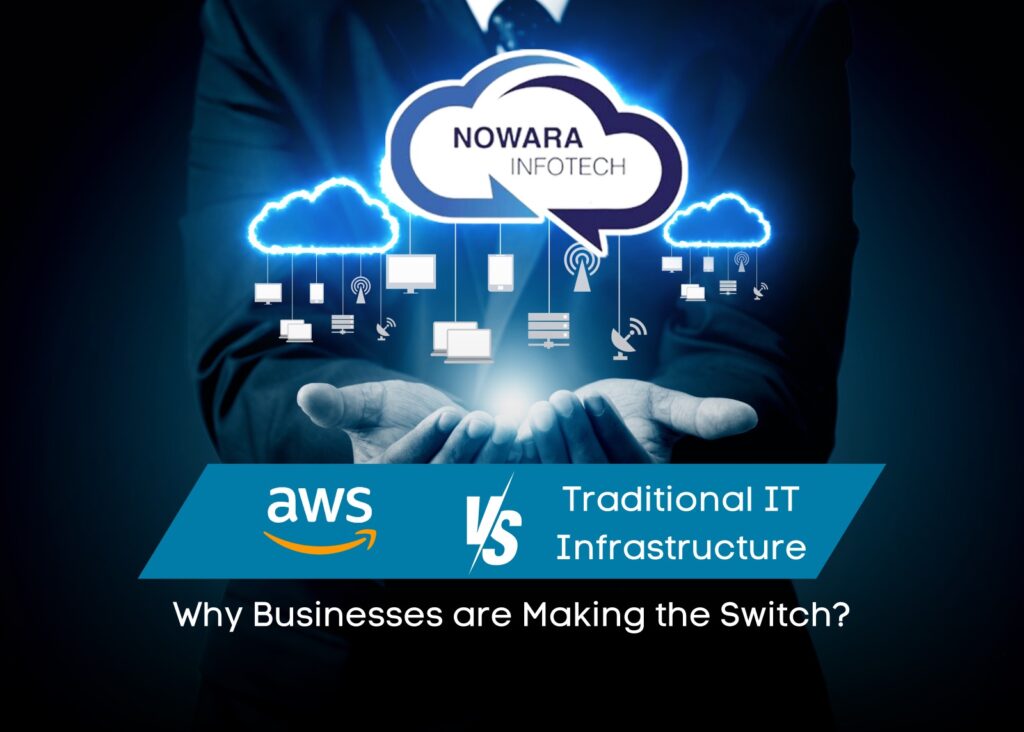In 2024, cloud computing has transformed the way businesses manage their IT infrastructure. With over 30% of the global market share, AWS (Amazon Web Services) remains the leading cloud services provider. Companies are rapidly shifting from traditional IT infrastructure to cloud-based solutions, and AWS is often the platform of choice. But why are businesses making this switch? What are the benefits of cloud computing over traditional IT infrastructure, and what makes AWS the go-to provider? Why Should Companies Switch to Cloud Computing? Businesses today are under immense pressure to remain agile, scalable, and cost-efficient. Traditional IT infrastructure often struggles to meet these demands, primarily due to its limitations in flexibility, scalability, and cost management. Cloud computing offers a dynamic and flexible solution that allows businesses to scale their resources up or down based on real-time needs. With the growth of data-driven operations, digital transformation, and global expansion, companies require infrastructure that can keep up with rapid changes in business requirements. This is where cloud computing, particularly through AWS web services, provides significant advantages over traditional IT setups. Benefits of Cloud Computing Over Traditional IT Infrastructure 1. Scalability and Flexibility One of the primary benefits of cloud infrastructure, like AWS cloud services, is its ability to scale effortlessly. Traditional IT infrastructure requires significant upfront investment in hardware and software, and expanding capacity means additional costs and time-consuming upgrades. In contrast, cloud computing allows companies to scale their IT resources on-demand. Whether a business needs to handle seasonal traffic spikes or expand rapidly, AWS can scale its resources without downtime or additional physical hardware. 2. Cost-Efficiency Cloud computing operates on a pay-as-you-go model, meaning businesses only pay for the resources they use. This eliminates the need for large upfront capital expenditures required for traditional IT infrastructure, which involves purchasing servers, networking equipment, and storage. Amazon cloud services providers offer flexible pricing models, reducing unnecessary expenses and providing cost-efficient alternatives to traditional setups. 3. Global Accessibility Cloud infrastructure provides global reach, enabling businesses to deploy applications and services across multiple regions effortlessly. AWS offers cloud services through a global network of data centers, ensuring that businesses can deploy resources close to their customers, reducing latency, and improving performance. 4. Security and Reliability While traditional IT infrastructure often struggles with maintaining consistent security protocols, AWS as an AWS cloud services provider offers world-class security. AWS offers end-to-end encryption, compliance certifications, and built-in security features that meet the highest industry standards. Moreover, cloud providers like AWS ensure near 100% uptime with redundancy and failover mechanisms in place, enhancing reliability. 5. Simplified Management and Maintenance In traditional IT setups, businesses are responsible for maintaining their hardware, software updates, and security patches, often requiring dedicated teams to handle these tasks. Cloud infrastructure, on the other hand, automates these processes. AWS handles routine maintenance, software updates, and security patches, freeing businesses from the time-consuming tasks of infrastructure management. What Are The Problem With Traditional IT Infrastructure? Traditional IT infrastructure is rigid and costly. Companies need to invest heavily in hardware, software, and skilled personnel to manage their IT environment. Once installed, this infrastructure becomes difficult to scale, leaving businesses stuck with underutilized resources or overburdened systems when demand increases. Another significant issue with traditional infrastructure is downtime. As businesses grow, maintaining an on-premises data center requires scheduled maintenance, which can lead to costly downtime, impacting business operations and customer experience. Traditional IT infrastructure examples include on-premise servers, data centers, networking equipment, and physical storage systems. While this model was once the only option for businesses, it lacks the flexibility and agility required in today’s fast-paced digital environment. Traditional IT Infrastructure vs. Cloud Computing 1. Upfront Costs Traditional IT: Requires large initial investments in hardware, software, and IT staff. Cloud Computing: Operates on a pay-as-you-go model, eliminating upfront capital expenditure. 2. Maintenance Traditional IT: Businesses are responsible for maintaining and upgrading their own equipment. Cloud Computing: Maintenance and upgrades are handled by the cloud provider, such as AWS, allowing businesses to focus on core activities. 3. Scalability Traditional IT: Scaling requires additional investment in hardware, which takes time and planning. Cloud Computing: Instantly scalable with no physical limits, making it easier to grow or shrink as business needs change. 4. Accessibility Traditional IT: Accessible only within a fixed physical network or location. Cloud Computing: Accessible from anywhere in the world, offering remote work capabilities and global reach. 5. Disaster Recovery Traditional IT: Disaster recovery requires duplicate infrastructure and complex manual processes. Cloud Computing: Cloud providers like AWS offer built-in disaster recovery options, ensuring business continuity with minimal effort. Cloud IT Infrastructure Cloud IT infrastructure is a virtual environment that mimics traditional infrastructure, providing essential computing resources such as storage, networking, and processing power through the internet. AWS, as an AWS web services provider, offers a comprehensive range of AWS cloud services, including computing power (EC2), storage (S3), and database management (RDS). With AWS cloud infrastructure, businesses can avoid the physical limitations of on-premise data centers, access resources on-demand, and deploy them globally. AWS continues to innovate with services like machine learning, AI, and IoT, allowing businesses to leverage cutting-edge technology without needing specialized internal teams. Why Businesses Are Choosing AWS? In 2024, AWS remains the leading amazon cloud services provider, powering startups, large enterprises, and government organizations across the globe. AWS stands out due to its comprehensive service offerings, global data centers, and commitment to security and compliance. With AWS, businesses can seamlessly migrate from traditional IT infrastructure to the cloud, benefiting from reduced costs, greater scalability, enhanced security, and simplified management. AWS continues to innovate, providing businesses with the tools and services needed to stay competitive in today’s digital landscape. Partner with Nowara Infotech for the best AWS Services: As businesses continue to evolve in the digital age, the limitations of traditional IT infrastructure are becoming more apparent. Cloud IT infrastructure, especially through a reliable provider like AWS, offers the flexibility, scalability, and cost savings that modern businesses need. By switching to AWS, businesses can free themselves



